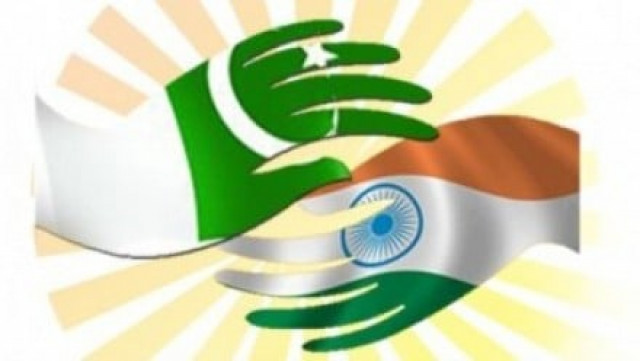Trade with India: Political, economic policy need to be on the same page
MFN status will help bring a paradigm shift in our diplomatic ties.

Trade with India: Political, economic policy need to be on the same page
Pakistan will pay around $6 billion this year as opportunity cost of an India-centric national security apparatus, which has now been equally engaged towards the western fronts.
Eventually, under the WTO regime, the MFN status should be seen as a more or less a statutory obligation, rather than a purely economic decision. The real flow and direction of Indo-Pak trade will depend on business dynamics, in the light of the ancient supply and demand curves together with relative prices.
The economic calculus of formal Indo-Pak trade is trivial, at least for India. With total formal Indo-Pak trade of around $2 billion, this translates into 0.27% of India’s foreign trade basket. For Pakistan, it means more, with around 3% of its external trade. In comparison, Pakistan transacts 10.83% of its international trade with China, 10.65% with UAE, 8.41% with USA and 7.26% with Saudi Arabia.
It is noteworthy that except for the US, in these selected countries sample, Pakistan runs significant trade deficits with its otherwise ‘brotherly’ countries. Very few people realise that after the US, Afghanistan has become Pakistan’s most favorite destination, which accounts for close to 10% of our exports, whereas the US accounts for 16%. With Pak-USA diplomatic terms at far from their best and with Afghanistan now always in an aggressive tone towards Pakistan, we are fast losing our business partners. It is ironic that our foreign policy and trade trends seem to be working at odds.
It is obvious that with India’s relatively very low dependence on its trade with Pakistan, this should not appear very high on the Indian policy horizon. But for Pakistan, it does matter more. Probably more than the trade size, normalisation of trade with India will bring, in the long run, a paradigm shift in our national security understanding. With the prospects of India being viewed as business partner, our India-centric national security discourse, which in any case is losing legitimacy due to internal challenges, will undergo significant change.
In the short run, normalisation of Indo-Pak trade relations will mean more peace, if not more trade. In the long run, this will release significant burden from our public finance. Pakistan allocated around $5.88 billion this year for its defence budget. It is mere coincidence that this is also the size of our total trade with the US.
By all accounts, granting MFN status to India is a significant development. It does enjoy political consensus as all major political parties have signed a document called National Economic Agenda, orchestrated by the Pakistan Business Council. Probably their leaders would do well by looking at their publicly announced commitment before criticising MFN status to India.
It is clear that the policy of opening up trade with India will create winners and losers. Forces whose interest will lie in more commerce and more inclusive culture will favour normalisation. We must remember: if goods do not cross borders, armies will.
The writer is a principal consultant at Development Pool.
Published in The Express Tribune, December 26th, 2011.



















COMMENTS
Comments are moderated and generally will be posted if they are on-topic and not abusive.
For more information, please see our Comments FAQ